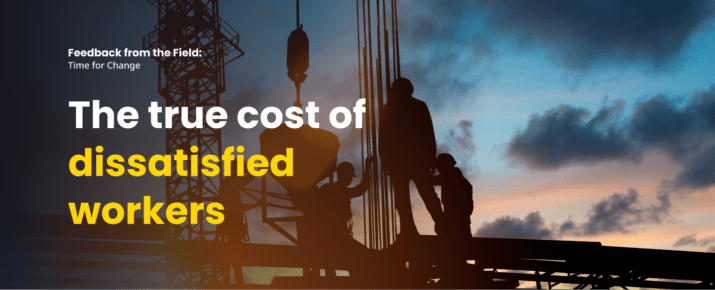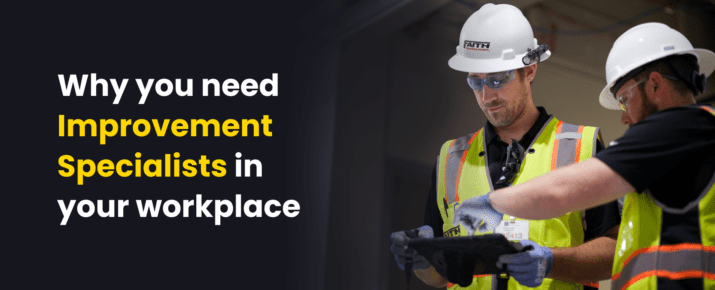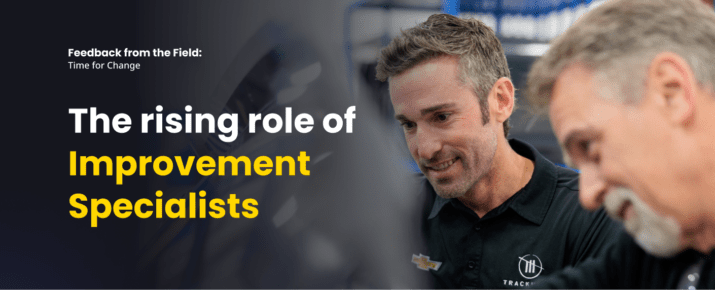Frontline workers are concerned about the future
Feedback From The Field | World Of Work | By | 29 Nov 2023 | 5 minute read
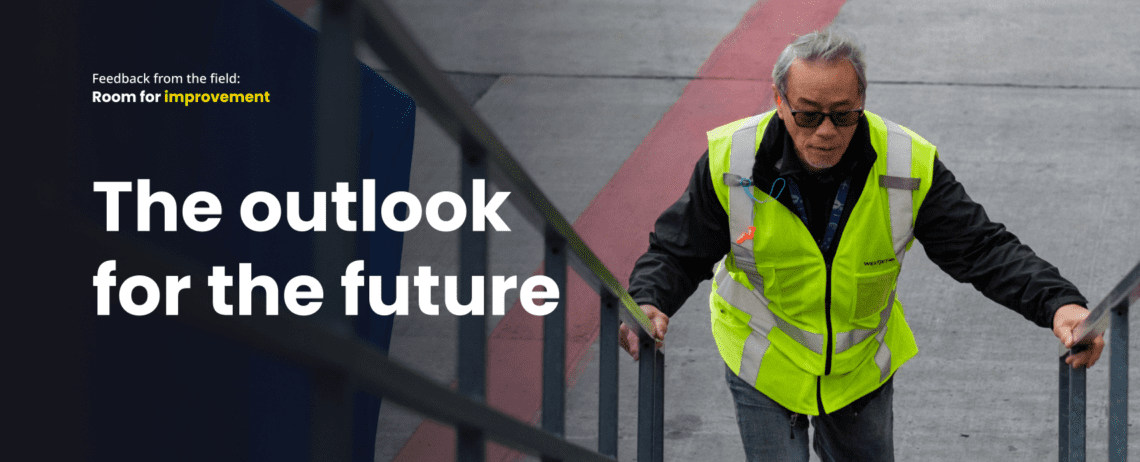
Leave your personal problems at the door. For decades, that was the default agreement between organizations and employees. You were there to work – and when you clocked in, the expectation was that you’d leave your own demands and worries behind.
That’s no longer the case. The pandemic illustrated just how impossible and unreasonable it is to expect workers to forget their own fears and doubts while on the clock, particularly when many of their concerns touch every aspect of their lives (including their jobs).
Gone are the days when leaders can assume employees will stuff their personal apprehensions into their locker with the rest of their belongings. Today, they’re more present and palpable than ever – and it’s up to frontline leaders to determine how to positively address those fears, rather than avoid them.
What are frontline workers most worried about?
So, what exactly is on frontline workers’ minds? According to our own report ‘Feedback from the Field: Room for Improvement’ conducted in partnership with YouGov, cost of living reigns supreme among workers across all three surveyed countries (Australia, the UK, and the US). Here’s the breakdown:
- Australia: 79% of respondents cited cost of living as a concern
- UK: 88% of respondents
- US: 77% of respondents
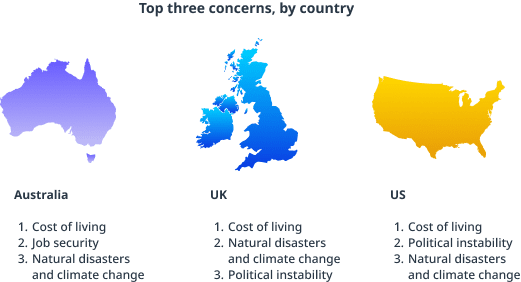
While cost of living tops the list in all three countries, other concerns vary depending on location. Climate change and natural disasters is a top-three concern in all countries, coming in second place for the UK and third place for Australia and the US.
Political instability is another big one, ranking as the second biggest concern in the US (with 60% of respondents citing this answer) and the third biggest in the UK (with 48% of respondents).
But frontline workers don’t only worry about the world being unstable – they worry about the steadiness of their own jobs too. Future job security was another commonly-cited concern in all three countries:
- Australia: 51% of respondents
- UK: 44% of respondents
- US: 42% of respondents
And a lot of that trepidation is likely owed to the growing conversation about the impact of AI and its potential to replace jobs, which ranked as another big concern among frontline workers.
In short, today’s frontline workers have a lot on their minds. And overlooking or discounting these very real and meaningful worries will only worsen the ongoing burnout epidemic among frontline employees.
How frontline leaders can manage concerns (and fuel confidence)
That’s heavy stuff, but there is some good news here: despite their concerns, our survey shows that an impressive 65% of frontline workers feel optimistic about the future of the organization they work for.
Frontline leaders need to find ways to feed that sense of hope and enthusiasm, without sugarcoating or diminishing the fears that are top of mind. How? Here are three strategies to lean into optimism without seeming out of touch.
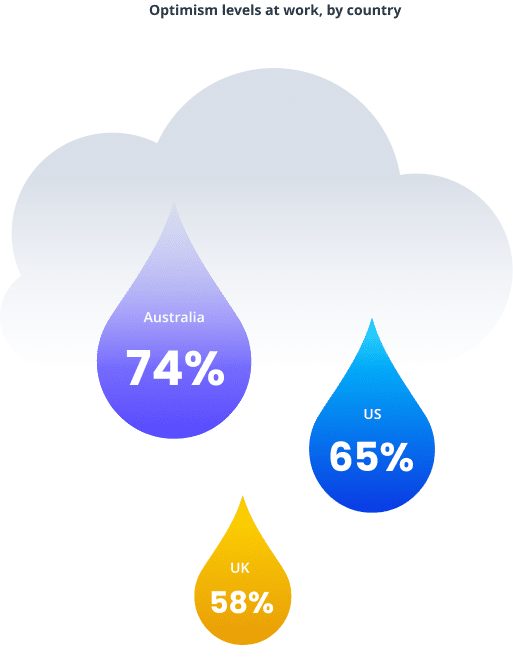
1. Provide space for concerns
The first tip is a simple but powerful one: provide time, space, and support for frontline workers to vocalize their concerns — both with their managers and with other employees.
While you don’t want every workday to spiral into an endless vent session focused on nothing but doom and gloom, fostering an environment where workers can connect with each other can provide helpful social support and camaraderie as they navigate those challenges. Leaders can also model and encourage this behavior by being vulnerable and candid about their own anxieties.
Think you’re already doing this? Your employees might beg to differ. Research shows that employees don’t feel heard on important workplace topics. That’s even more true on the frontline, where one in four employees say they don’t feel heard at all in their workplace.
So, open the floor to employees and offer adequate space for them to voice their worries without fear of judgment or repercussions. The simple act of listening can do a lot. One study found that when managers actively listened, they reduced employees’ feelings of job insecurity.
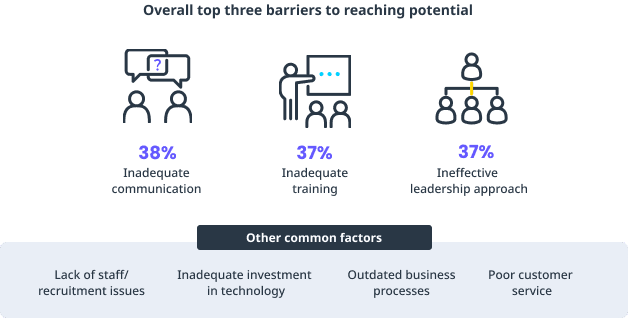
2. Offer meaningful benefits and opportunities
Workers don’t just want their employers to listen — they also want them to take action. You can use your employees’ concerns as inspiration for new benefits, programs, or improvements to your:
- Compensation: Frontline workers point to pay as the second most important advancement need, ranking behind only job growth. That makes sense when 55% of workers say their pay hasn’t kept pace with inflation. If employees are sharing a lot of concerns about cost of living, it’s worth revisiting your wages to ensure they’re adequate.
- Career development: Frontline employees value job growth and learning opportunities. Providing chances for them to hone their skills (or learn new ones) as well as detailed paths to advancement can keep employees motivated and also boost their feelings of security within your organization.
- Mental health support: 71% of employers believe they provide good support for frontline workers’ mental health, but only 27% of frontline employees agree. From counseling services to training to help managers address tough topics, look at the ways your organization currently supports your employees’ mental wellbeing and identify ways you can improve.
There are no easy fixes to global problems like political instability and inflation. But checking some of these boxes within your own organization helps your employees feel more secure and supported at work as they continue to ride those bigger waves.
3. Communicate openly and transparently
As humans, we’re hardwired to avoid uncertainty, but it’s been a relentless constant the past few years. When you don’t communicate openly and honestly, employees are left to make guesses or assumptions – which only adds to the uncertainty they’re already struggling with.
Is your organization planning to use AI? When and how? Are you adjusting your benefits? Why? Aim to keep workers informed as much as you possibly can.
When our survey reveals that poor communication is the top factor workers point to when they say their organization isn’t operating at its full potential, there’s really no such thing as over-communicating.
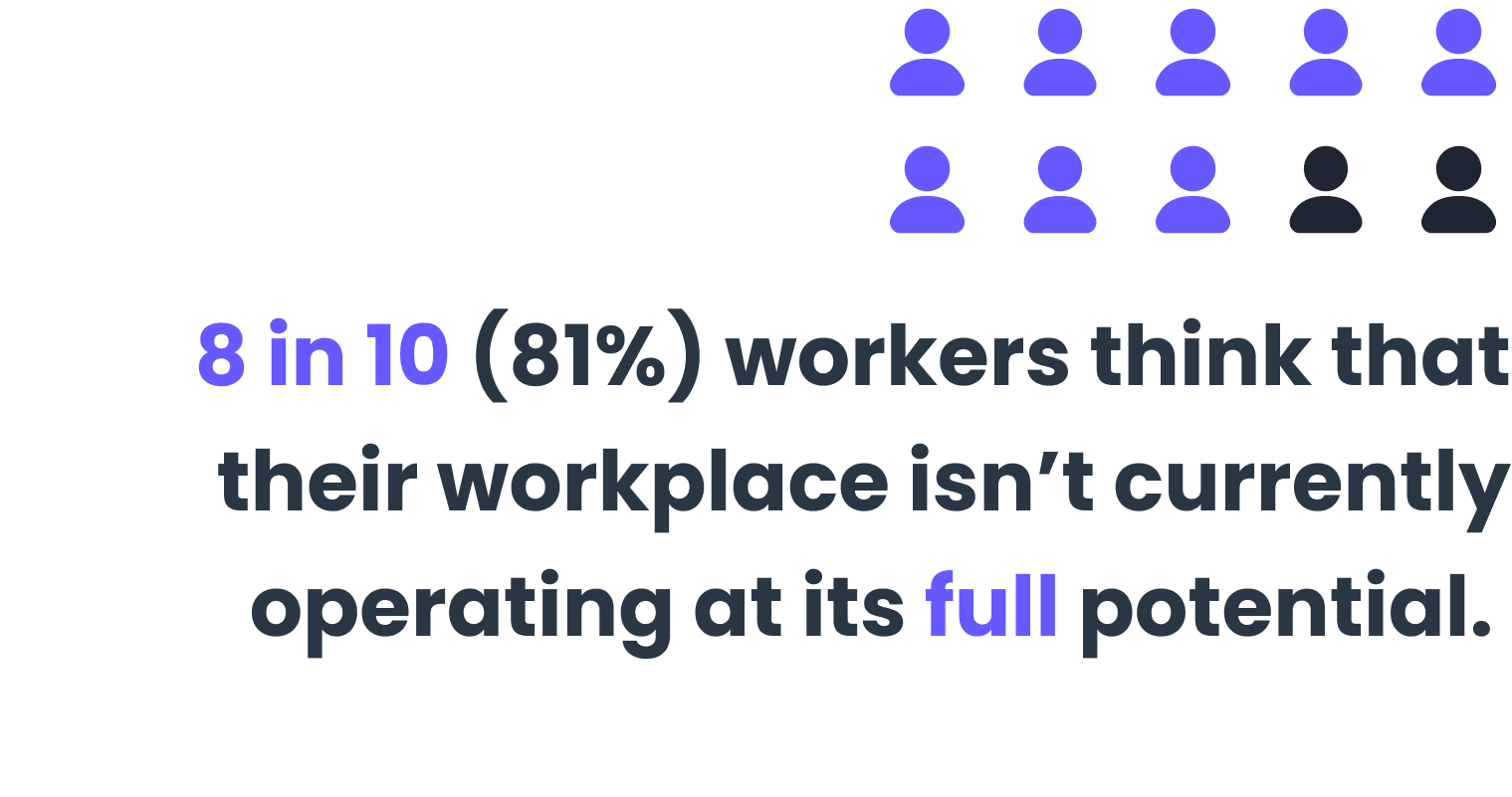
Eye to the future: More hope, less hesitation
Today’s workers are grappling with a lot of fears and anxieties. But despite those unique pressures, there’s still a lot of ambition and optimism as frontline employees look to the future. It’s up to frontline leaders to lean into optimism without side-stepping employees’ valid concerns.
By listening, learning, and improving, leaders can cultivate work environments where employees feel empowered to voice their hesitations and know that they’ll receive adequate support and validation. After all, that’s when they’re set up to do their best work — regardless of what else is happening in the world.
*About the research
All figures, unless otherwise stated, are from YouGov Plc. Total sample size was 2,057 adults (769 UK, 757 US, 531 Australia). Fieldwork was undertaken during June 2023. The survey was carried out online. The figures have been weighted and are representative of US, UK, and AU frontline workers (aged 18+).
Read more Feedback from the Field articles:
- Frontline workers are excited about AI – here’s how to build on it
- Upskilling frontline workers – here’s how to do it right
- Speaking up and taking action: How to empower frontline workers
Important Notice
The information contained in this article is general in nature and you should consider whether the information is appropriate to your specific needs. Legal and other matters referred to in this article are based on our interpretation of laws existing at the time and should not be relied on in place of professional advice. We are not responsible for the content of any site owned by a third party that may be linked to this article. SafetyCulture disclaims all liability (except for any liability which by law cannot be excluded) for any error, inaccuracy, or omission from the information contained in this article, any site linked to this article, and any loss or damage suffered by any person directly or indirectly through relying on this information.
